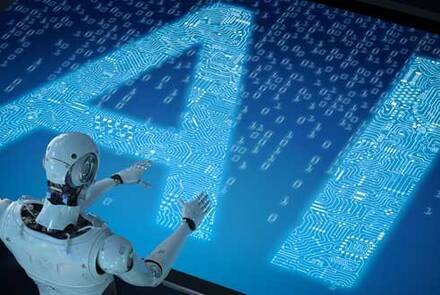How Generative AI is being Applied to DevOps
In the ever-evolving landscape of technology, DevOps practices have become indispensable for organizations seeking to streamline their software development and deployment processes. Now, with the integration of generative artificial intelligence (AI), DevOps is entering a new era of efficiency, automation, and innovation. This article explores how generative AI is revolutionizing DevOps and the benefits it brings to organizations.
What is Generative AI?
Generative AI refers to algorithms and models capable of generating new content, such as images, text, or even code, based on patterns and examples from existing data. These AI systems learn to mimic and create novel outputs that resemble those in the training data, enabling them to assist in various creative and problem-solving tasks.
Generative AI and DevOps: A Perfect Match
DevOps, a combination of ‘Development’ and ‘Operations’, is a set of practices that combines software development and IT operations. It aims to shorten the system development life cycle and provide continuous delivery with high software quality.
Generative AI can be a powerful tool for DevOps teams. Here’s how:
- Code Generation and Automation: Generative AI can assist in automating repetitive coding tasks by generating code snippets, scripts, or even entire software components based on predefined requirements and patterns. This accelerates development cycles and reduces manual effort, allowing teams to focus on higher-level tasks.
- Test Data Generation: Generating diverse and comprehensive test data is crucial for ensuring the quality and robustness of software applications. Generative AI can create synthetic data sets that mimic real-world scenarios, helping teams to thoroughly test their applications under various conditions without relying solely on limited or sensitive real data.
- Anomaly Detection and Predictive Maintenance: By analyzing vast amounts of operational data, generative AI algorithms can detect anomalies, patterns, and trends indicative of potential issues or failures in software systems or infrastructure. This enables proactive monitoring, predictive maintenance, and preemptive resolution of issues, reducing downtime and enhancing reliability.
- Infrastructure Optimization: Generative AI can optimize infrastructure configurations and resource allocation by analyzing usage patterns, performance metrics, and workload demands. By dynamically adjusting settings and parameters, AI-driven systems can maximize efficiency, scalability, and cost-effectiveness in cloud environments and data centers.
- Continuous Integration and Deployment (CI/CD): Integrating generative AI into CI/CD pipelines enables intelligent decision-making and automation throughout the software delivery lifecycle (See also: DevOps and CI/CD for Cloud-Native Transformation). AI algorithms can analyze code changes, test results, and deployment histories to optimize release schedules, identify potential risks, and recommend deployment strategies for achieving faster, safer, and more reliable releases.
Benefits of Using Generative AI for DevOps
- Enhanced Productivity: By automating repetitive tasks and providing intelligent assistance, generative AI frees up valuable time for developers and operations teams to focus on innovation, problem-solving, and delivering business value.
- Improved Quality and Reliability: Generative AI aids in creating and testing software more comprehensively, leading to higher-quality releases with fewer defects and vulnerabilities. By identifying and addressing issues earlier in the development process, organizations can deliver more reliable and resilient applications to their users.
- Faster Time-to-Market: With AI-driven automation and optimization, organizations can accelerate development cycles, shorten release cycles, and respond more quickly to changing market demands, gaining a competitive edge in delivering new features and updates to customers.
- Cost Savings: By optimizing resource utilization, minimizing downtime, and reducing manual effort, generative AI helps organizations optimize their infrastructure and operational costs, maximizing return on investment and profitability.
- Innovation and Experimentation: Generative AI fosters a culture of experimentation and innovation by enabling developers to explore new ideas, design alternatives, and creative solutions. By leveraging AI-generated insights and recommendations, organizations can continuously improve their processes and products, driving business growth and differentiation.
Conclusion
In conclusion, the integration of generative AI into DevOps practices offers tremendous opportunities for organizations to enhance efficiency, innovation, and competitiveness in today's fast-paced digital landscape. By harnessing the power of AI-driven automation, optimization, and intelligence, organizations can unlock new levels of productivity, quality, and agility, paving the way for a future of continuous improvement and success in software development and delivery.
For more information about Trigyn’s Cloud Services, Contact Us.






